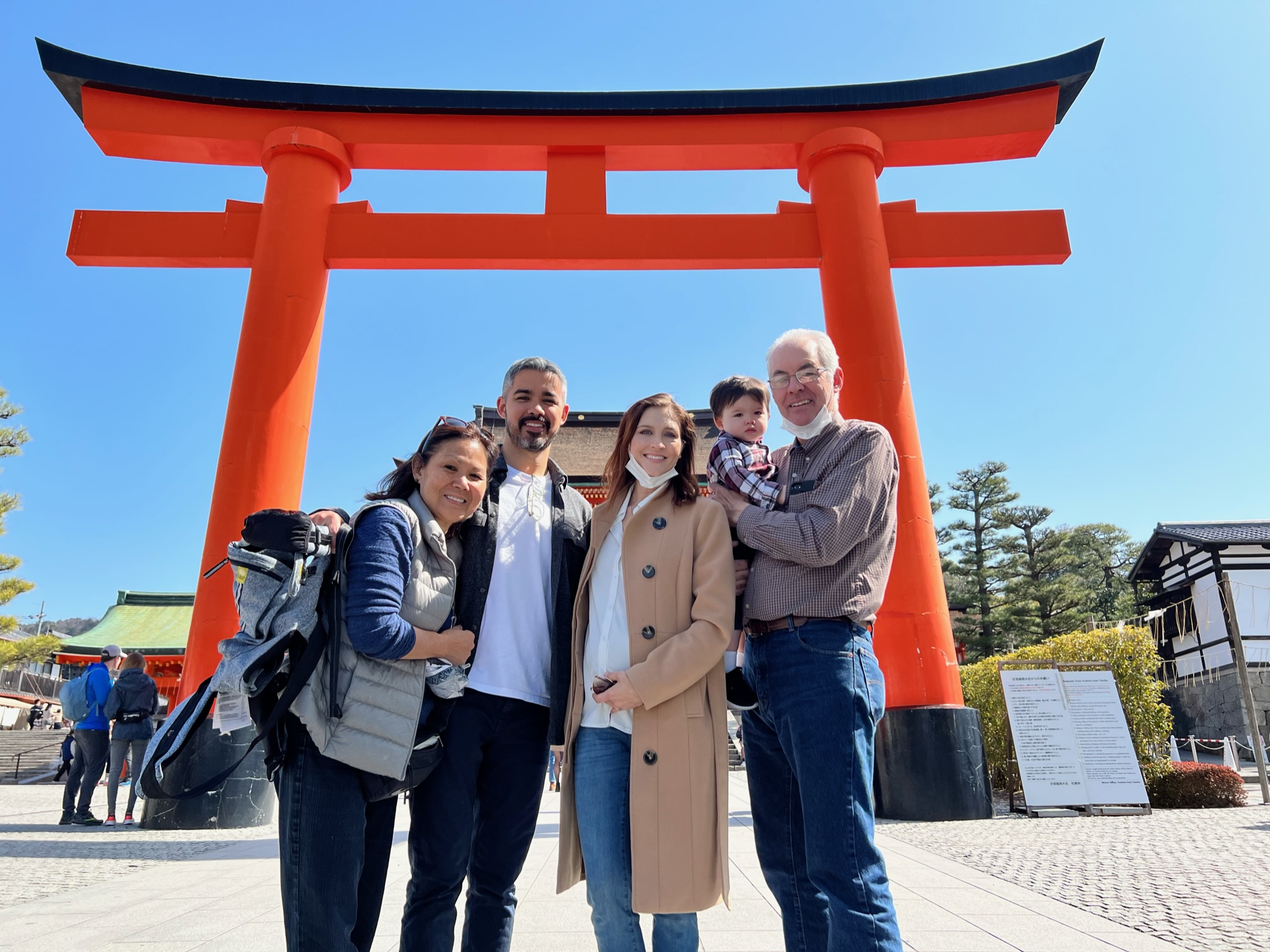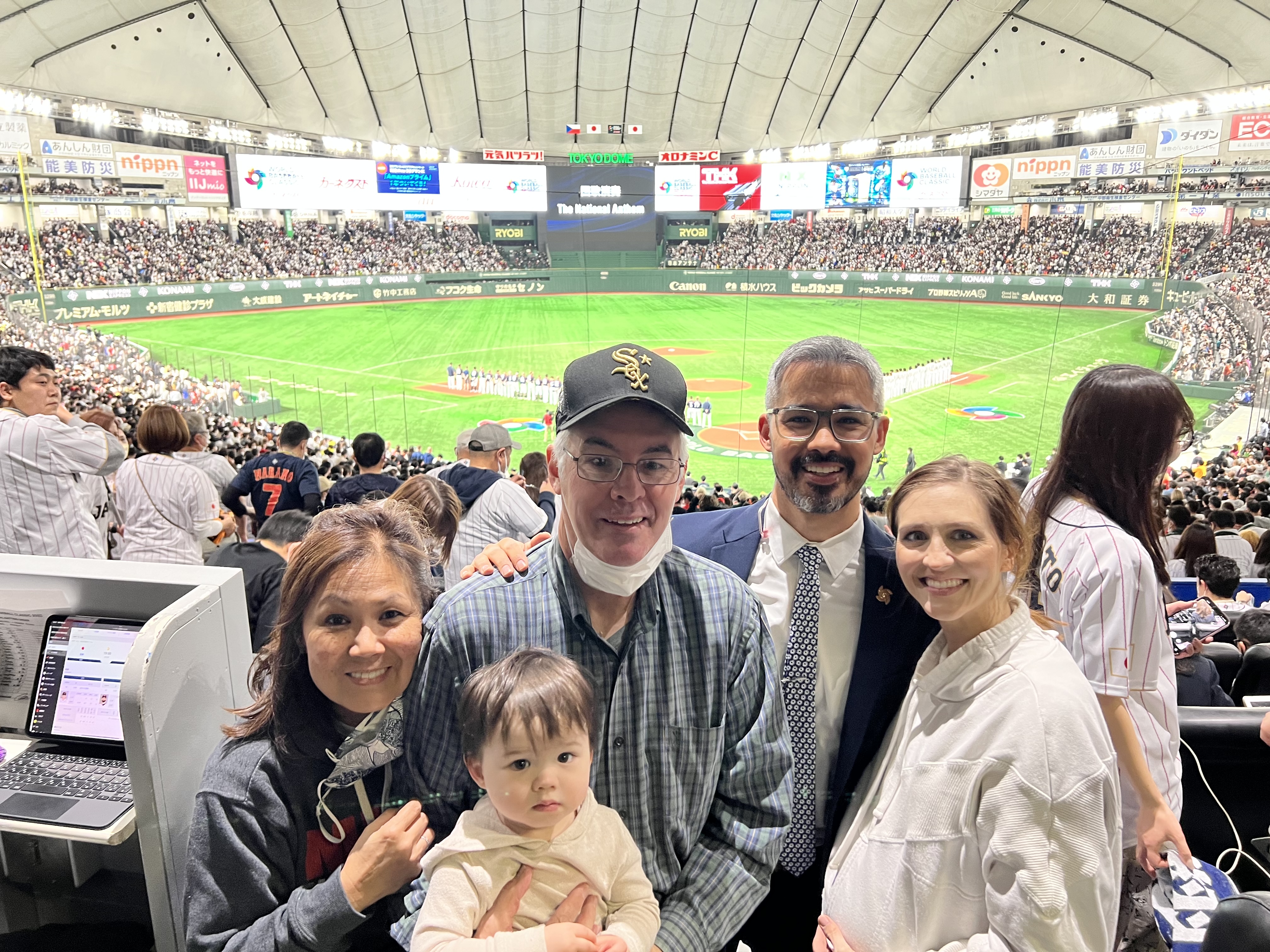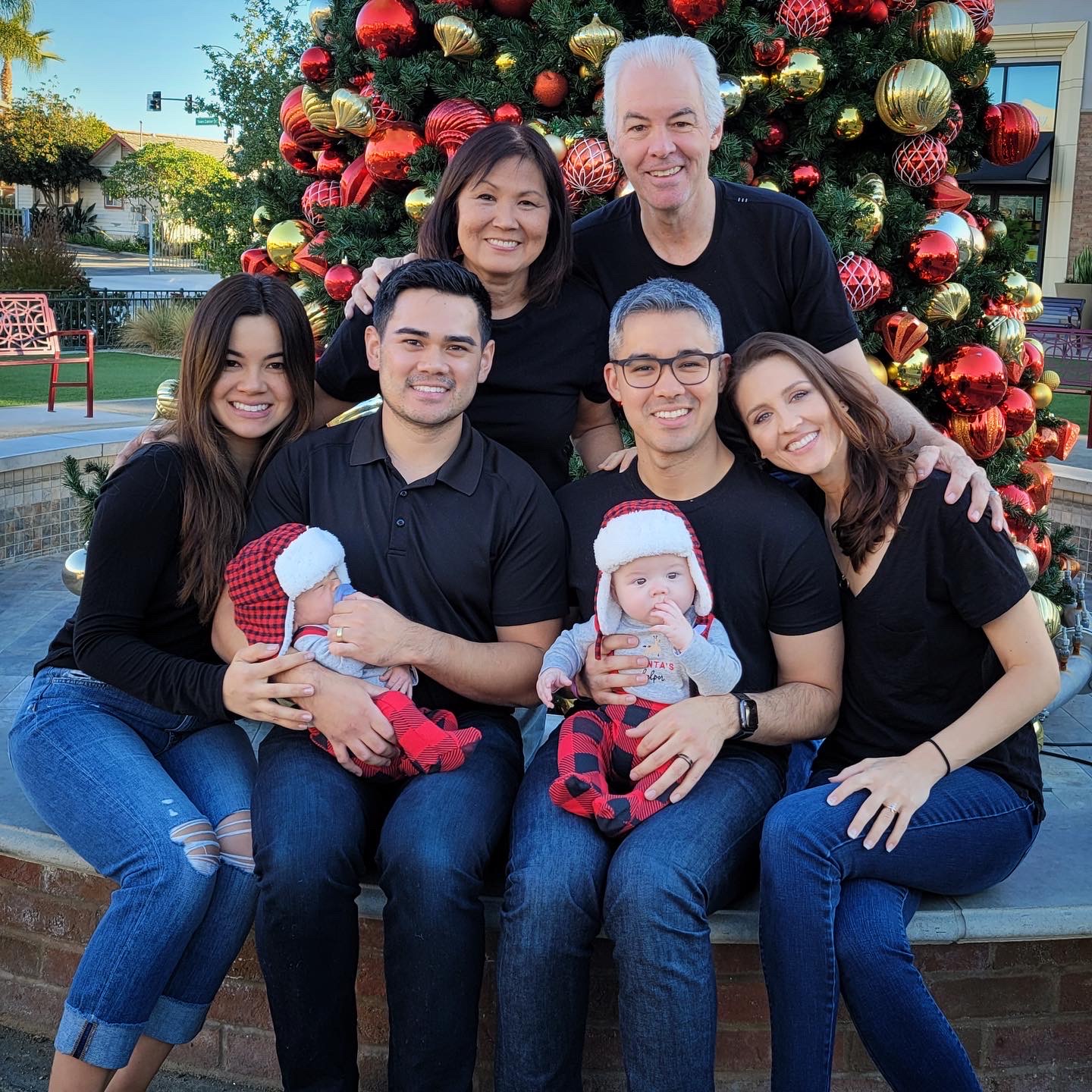When MLB Network finalized plans to broadcast World Baseball Classic games from Japan this past March, Stephen Nelson isn’t afraid to admit he “basically begged for the assignment.” Up until that point, Nelson, who is a fourth-generation Japanese American, had only heard stories of his ancestral homeland -- family folklore-type stories, the type that become fundamentally woven into the fabric of so many Americans’ senses of self but that so few get to access or actualize.
So when Nelson, whose star had been rising at the network since 2018, was granted the assignment, he jumped at it. Flying from Southern California days before the tournament, the 34-year-old and his young family crammed in a detour to Kumamoto, a major city on Japan’s south island Kyushu. The ornate castles there date back to the 17th century; Nelson had been raised to believe his lineage traced back not only to the region but also to those castles, his mother’s family descendant from Samurai and farmers of the area before they left for Hawaii in the late 1800s.
“There was no address,” Nelson said. “It wasn’t like the scene in ‘White Lotus’ … but our guide, he found our family crest and it was very similar to the family that lived in Kumamoto Castle. It gave validation to my grandmother's stories that she passed on. Then we went out into the country, and there's this monument that is basically an ode to the farmers who lived on that land. And so it was really, really heavy.”

The experience was crystalizing for Nelson, who now, in his first season calling Dodgers games, holds the distinction as MLB's only Asian American play-by-play announcer. The spotlight inherent with the role has been enhanced even further during Asian American Pacific Islander Heritage Month this May, which Nelson has spent reiterating a message of continued progress and inclusion in high-profile interviews on programs like “The Today Show” and elsewhere.
“It's a bewildering honor that I'll cherish forever, but it's also a signal, like, how much work we got to do for broadcasters of color, right?” Nelson said. “It's a cool thing, but the way I keep saying it is, being the first one is really special, but it will mean a lot less to me if I'm the last or the only.”

An important part of that honor, Nelson believes, is representation. Another is showing the younger generation that it is possible. Having grown up in SoCal, Nelson understands the venerable professional lineage he is now a part of as a voice of the Dodgers, in company with icons like Vin Scully and Jaime Jarrín. But the broadcasters who had the biggest impact on him came from local news: KTLA’s Frank Buckley and ABC 7’s Rob Fukuzaki, who are both Japanese American.
For Nelson, watching and later meeting Buckley and Fukuzaki taught him that aspiring to a career in journalism “wasn’t this crazy thing.” He knows that every time he straps on his headset from the Vin Scully Press Box at Chavez Ravine, he could have the same impact.
“What if there’s another young Japanese American kid out there right now?” Nelson said. “I try not to think too much about that when it’s bases loaded, two outs. I try not to add that pressure to an already pressure-packed situation. But I’d be lying if I told you that I didn’t. That I wasn’t aware of it. The word that comes to mind is responsibility, because it is a massive one. I don’t want to let anybody down.”
If you caught Nelson’s interview on “The Today Show,” you’d have seen him say his only goal for his new role “is to not disappoint my parents.” Reflecting on that remark a few weeks later, Nelson confirmed with a chuckle that he is, in fact, not letting his loved ones down. The emotion he’s far more filled with is gratitude, for the support and sacrifices his father, Scott, and mother, Flo, made to shape him, not only with a knowledge of who he is but also with a conviction to follow his dreams.
“My wife calls me Peter Pan, because she says I don’t want to grow up or let go of my childhood and how that’s a beautiful thing, because I had such an amazing childhood,” Nelson said. “And she’s right. I look back on growing up with such a full heart. We didn’t want for anything.”

Nelson credits Flo, who was part of the inaugural staff for downtown L.A.’s Japanese American National Museum, for instilling him with “the love and respect for who we are a culture and where we come from as a family.” Almost every year, Flo and Scott took Stephen and his little sister, Kimi, to visit their relatives in Hawaii, with an eye toward strengthening the children’s connections to their Japanese side. Nelson cherishes childhood memories of learning origami and eating food in Little Tokyo with Flo, attending Japanese school on the weekends and continuing his language education as an elective through high school, even if opportunities to apply it were limited.
Eventually, they arose. Nelson isn’t a fluent speaker, but he proved at the 2021 World Series that he remains more than conversational enough by presenting Shohei Ohtani with the Commissioner’s Historic Achievement Award in the Japanese star’s native language. His intention? “To make sure every Japanese person in that room felt seen and heard and welcomed,” he said.
“Being mixed, identity is something that I've battled with at certain points in my life, especially during those formative teenage years. I used to kind of look at my heritage as like a dial: I can dial it back here, dial it up there,” Nelson added. “That’s something that’s gone away completely as I've gotten older. I’m 50 percent Japanese but 100 percent proud of that, and I'm going to embrace and wave that banner proudly.”



